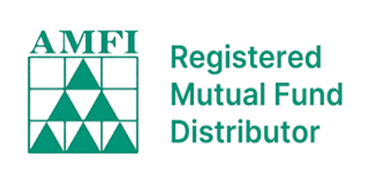Your First Step to Financial Freedom: A Beginner’s Guide to Personal Finance
If you’ve ever felt lost or overwhelmed about managing money, you’re not alone. Financial planning may seem complicated, but every journey begins with a single, simple step. Whether you’ve just landed your first job, started earning freelance income, or want to take control of your financial life, this guide is built just for you.


Why Financial Planning Matters
Imagine reaching your dreams—buying your own home, traveling the world, or retiring comfortably. All these dreams start with smart money management. Financial planning isn’t about being rich—it’s about making your money work for your goals. With a plan, you’re less stressed, more prepared, and able to enjoy life without money worries.
Setting Your First Financial Goal
Let’s start with something practical: set one concrete financial goal.
· What do you want to achieve in the next 12 months?
· It could be as simple as saving ₹20,000, paying off a credit card, or creating an emergency fund.
Tip: Use the SMART framework—Specific, Measurable, Achievable, Relevant, Time-bound.
For example: “I want to save ₹2,000 every month to build an emergency fund of ₹24,000 in one year.”
Budgeting 101: Your Financial Foundation
Budgeting is like a map for your money. It tells every rupee where to go, instead of wondering where it went. Here’s a simple way to start:
· Track everything you spend for a month. Use apps, Excel, or even a notebook.
· Try the 50/30/20 rule: 50% for needs, 30% for wants, 20% for savings or debt.
Real-life scenario:
When Sneha realized her online food orders totaled ₹4,000 a month, she trimmed them to ₹2,000 and saved the rest for a travel fund.
Build an Emergency Fund: Your Safety Net
Life is unpredictable. That’s why it’s essential to have an emergency fund—even a small one. Start with a goal like ₹10,000. Gradually build this to cover 3–6 months of your living expenses. This fund is a lifesaver for job loss, medical emergencies, or urgent repairs.
Managing Debt: Stay in Control
Debt isn’t always bad, but unmanaged debt can hurt you. If you have credit card balances, start by paying off the highest-interest loan first. Avoid using credit for things you can’t pay immediately. Stick to your repayment plan, and celebrate small wins along the way.
Saving & Investing: The Power of Starting Early
The earlier you start, the more your money grows—thanks to compounding. Start small, even if it’s just ₹1,000 a month in a recurring deposit or mutual fund SIP. Over time, your money works for you.
Example:
Amit started investing ₹2,000/month at 23. At 33, he’s built a substantial investment corpus, all because he started early and stayed consistent.
Common Mistakes to Avoid
· Not tracking your spending.
· Relying on credit for regular expenses.
· Not setting any savings goal.
· Ignoring insurance and tax planning.
Take Your First Action Step
1. Assess where you stand: note income, expenses, savings, and debts.
2. Pick one easy financial goal.
3. Create a simple monthly budget.
4. Automate your savings.
5. Keep learning—check back regularly at the Finclimbblog for practical tips.
Remember:
No question is too basic—ask, explore, and start your journey with confidence. Financial freedom is a climb, but with the right steps, you’ll reach your peak. Ready to take your first step? Share your questions or goals in the comments—we’re here to help you climb higher!
Stay tuned for more. If there’s a personal finance topic you’d like us to cover next, let us know!




